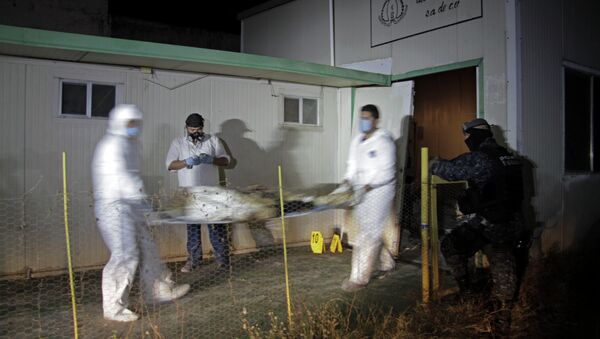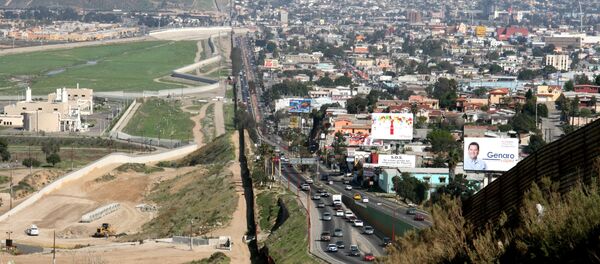Accroding to the report made by the Mexico's Civil Protection Ministry, a record 33,341 people were murdered in Mexico in 2018, making it the bloodiest year in over two decades. Sputnik has discussed the issue with Parker James Asmann, a journalist from Chicago, reporting on LatAm crime and security for InSightCrime.
Sputnik: Mexico’s current murder rate is 25.8 per 100,000 up from 22.5 in 2017 and 16.2 in 2016. It is even more than in 2011 during the peak of Mexico’s drug cartel-stoked violence. What is the reason for such a spike in numbers?
However, the country's criminal landscape has been fracturing in recent years, and this has impacted levels of violence.
Large organizations have splintered, and the smaller, competing organizations that have emerged are engaging in other crimes like extortion, kidnapping and oil theft.
They have a strong incentive to use violence to win control over different criminal economies and strategic territories.
Sputnik: Andrés Manuel López Obrador (Amlo), who came into office last December plans to keep a military presence on the streets. But, unfortunately, he has not presented any concrete plans to combat crime. How justified is the presence of the military on the streets? Can we expect to see large-scale police reform during his presidential term?
Parker James Asmann: The military is not a crime fighting institution. Using the military to intervene in domestic security issues has proven to be an ineffective strategy, not just in Mexico, but also in other parts of Latin America.
Police reform in Mexico is a monumental task. So far, we've seen López Obrador allocate resources for the creation of a new national guard, among other things.
It appears that police reform will likely have to wait. That said, López Obrador may be able to initiate the process of reforming the police force, but it will take a sustained effort throughout several administrations to truly reform the institution.
Sputnik: AMLO said he wouldn’t go after politicians accused of pilfering from the public purse, preferring instead to turn the page and positing that others will follow his strict example after he takes office. Why is he being so soft on corruption-related issues?
This type of overhaul will take time to implement, and could be met with pushback from those who have a vested interested in ensuring the current system doesn't change.
Sputnik: During President Calderón’s administration, which ended in 2012, the primary objective of the Mexican military was to combat the heads of cartels. But only beheading the cartels didn’t work and even provoked more violence from new cartels trying to claim lost territories. How can criminal activity be reduced and the war on the cartels be won?
Parker James Asmann: It's going to take a multi-faceted approach to curb criminality in Mexico. The so-called "war on drugs" has been a failure.
Mexico needs to address the root causes that drive people towards crime, such as unemployment, a lack of access to viable opportunities, and a lack of support and protection from elected officials and security force members, among other drivers.
That said, as long as there is a demand for drugs in the United States and other consumer nations, there will continue to be an incentive for drug trafficking groups in Mexico to meet that demand.
Sputnik: Why are the cases of large-scale killings (women, children and especially journalists) being neglected by the UN and other human rights organisations?
There are many human rights and other non-governmental organizations in Mexico and throughout the region that are working tirelessly to document the violence being carried out by criminal groups, security forces, government officials and other actors.
Sputnik: Joaquín Guzmán Loera during his trial described the level of corruption in Mexico. He said that it starts at the local level and reaches the very top of the political pyramid in the country. How can the level of corruption among authorities and security officials be reduced or eliminated?
Parker James Asmann: As I mentioned, it will take serious political will and sweeping reforms to combat institutionalized corruption in Mexico. I think addressing rampant impunity is a good place to start confronting corruption.
A large portion of crimes in Mexico go unpunished. If you are a police officer or public official that is corrupt, and you know that it's unlikely you'll be held accountable for being corrupt, then there is little incentive to change.
Views and opinions expressed in this article are those of Parker James Asmann and do not necessarily reflect those of Sputnik.







